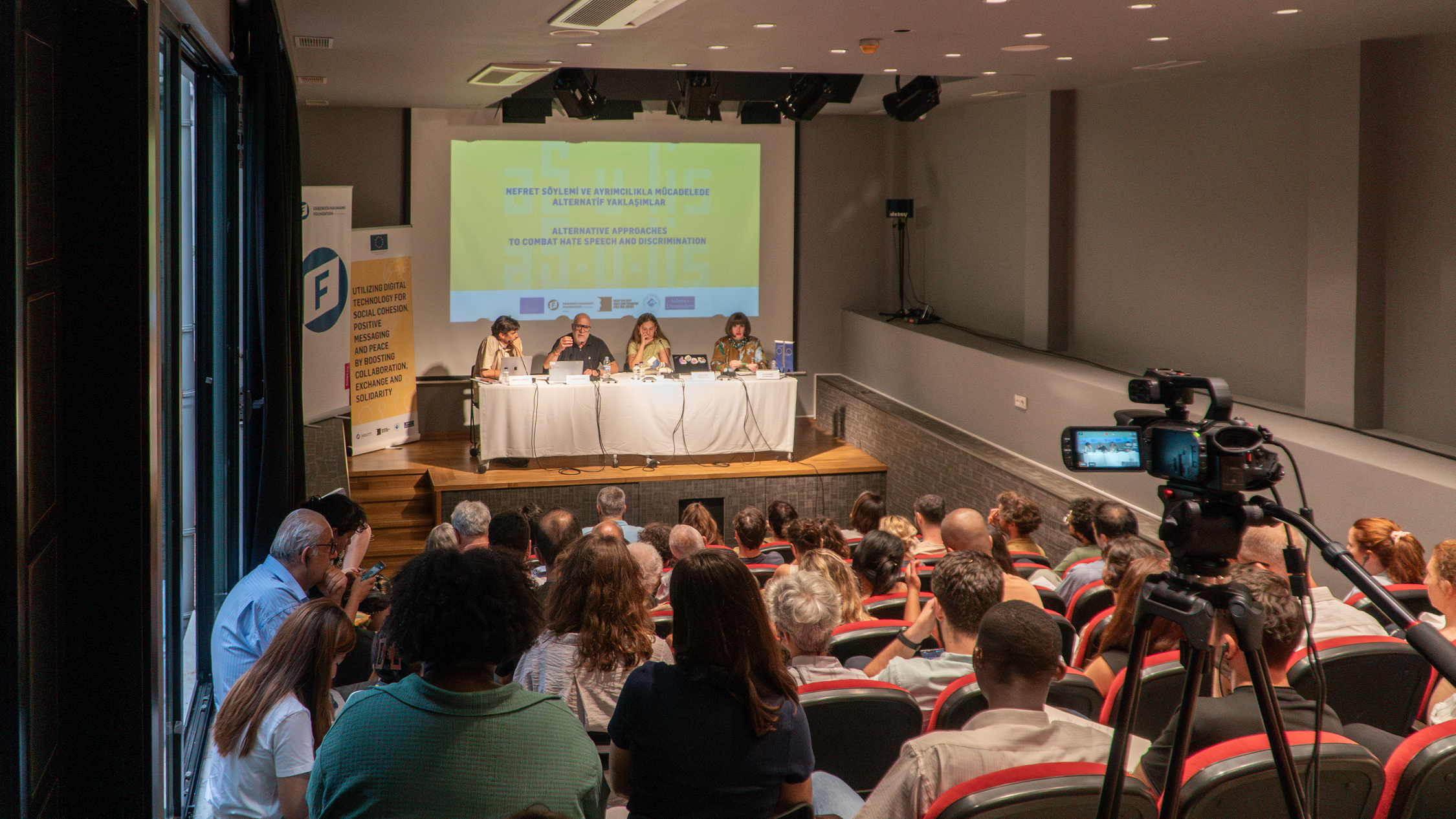Hate Speech
Alternative Approaches to Combat Hate Speech and Discrimination

As part of the series organized within the scope of the project “Utilizing Digital Technology for Social Cohesion, Positive Messaging and Peace by Boosting Collaboration, Exchange and Solidarity”, the sixth panel titled ‘ Alternative Approaches to Combat Hate Speech and Discrimination’ took place on Tuesday, September 10, 2024, at the Hrant Dink Foundation’s Havak Hall. The panel was live-streamed on the Foundation’s YouTube account in English and Turkish. The panel was moderated by Sarper Durmuş from Istanbul Bilgi University, and the speakers were Nazar Akrami from Uppsala University, Morgane Bonvallat from the Public Discourse Foundation, and Katharina Klappheck from Gunda Werner Institute.
87 participants attended the panel in-person at the Hrant Dink Foundation. 155 participants watched the Turkish livestream from the Foundation’s Youtube channel while 87 participants watched the English livestream. 1 participant followed the panel through the Arabic Zoom session. Overall the panel reached 330 participants. The panel, attended by media professionals, students in relevant fields, and employees of civil society organizations, address the alternative methods in combating discrimination and hate speech. The speakers reinforced their presentations with relevant examples related to the topic, which increased the engagement of participants. The questions from the audience at the end of the speeches and the lengthiness of the Q&A session served as evidence of the participants' interest in the topic.

Panel with moderator Sarper Durmuş (Istanbul Bilgi University), speakers Nazar Akrami (Uppsala University), Morgane Bonvallat (Public Discourse Foundation), and Katharina Klappheck (Gunda Werner Institute).
© Friedrich Naumann Foundation for FreedomIn his opening address, Aret Demirci, the Turkey Office Director of the Friedrich Naumann Foundation, highlighted the potential of artificial intelligence (AI) in combating hate speech and discrimination. He emphasized that hate speech online also impacts daily life and noted that AI's ability to detect and classify hate speech could be an effective tool in fighting discrimination.
Moderator Sarper Durmuş pointed out the increasing prevalence of hate speech both online and offline, citing examples from the UK and the Paris Olympics. He underscored the tension between freedom of expression and hate speech and stressed the need for alternative approaches to combat discrimination before introducing the first speaker, Nazar Akrami. Akrami discussed using the term "toxic language" instead of "hate speech" in Sweden and detailed the work of the European Hate Lab in studying toxic language, particularly in minor languages like Swedish. He emphasized that factors such as anomie and anonymity influence the use of toxic language and highlighted tools that create self-control mechanisms and community norms to reduce such language. Morgane Bonvallat shared their efforts to make online spaces safer and to support victims of hate speech. She cited a study showing that a small percentage of users are responsible for most hateful posts and suggested using empathy-based counter-discourse. Finally, Katharina Klappheck from the Gunda Werner Institute discussed treating hate speech as a cybersecurity issue and advocated for a feminist perspective in online safety. She emphasized the importance of content moderation and improving moderators' working conditions, highlighting successful practices from Brazil and Germany. The Q&A session explored applying these approaches in Turkey, the role of social media companies, and the effectiveness of context-aware detection tools.
